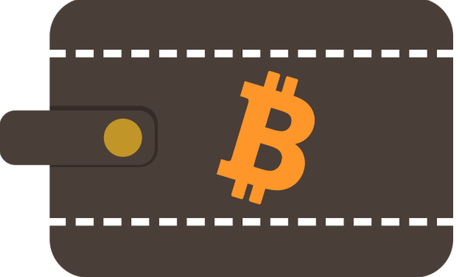is a cryptocurrency , or we can say digital currency that is stored in digital wallets . Like fiat currencies are stored in bank accounts, the cryptocurrencies are stored in wallets. Many different types of wallets have different features of storage, security, accessibility, and more.

The bitcoins have no physical appearance, and therefore they can't be stored technically. The bitcoin wallet doesn't store the bitcoins technically and stores funds on cloud storage.
Bitcoin wallets have three main things: private keys, public keys, and bitcoin addresses. The private keys are used to access the bitcoin address, which helps complete the transactions.
Private keys are the digital keys that are obligatory to sign the bitcoin transactions. It is imperative to store private keys with great care as if a user loses private keys, they may lose control of bitcoins and lose all their funds. You can make a profit by cryptotrader.software.
If you are a newbie that has just entered the world of cryptocurrencies and is unaware of the types of wallets, you are at the right place. You don't need to worry about storing your bitcoins as you will gain complete knowledge.
In this article, we will discuss the different types of bitcoin wallets and know about their features and security system.
Types of Bitcoin Wallets
The mobile wallet is easily accessed from mobile phones or tablets. This means that you are your bank and your funds are in your hands always. Through mobile wallets, the user can easily pay for goods and services.
You can easily tap on your phones and can pay money by scanning the QR code. It is not important to provide your sensitive personal information to wallets. If any mobile wallet asks your details, it is advised to uninstall it and switch to another.
Hardware wallets are the wallets that store the private keys on portable devices like DVD or Hard Drive. There are many different types of hardware wallets available, but there is a requirement for hardware wallet users to have some money in their wallets.
The main disadvantage of hardware wallets is that they store keys on portable devices. This increases the risk of malicious attacks and viruses as the virus can enter your computer via DVD and harm all the files and your private keys.
An online or web wallet is the wallet that stores the keys online. The third-parties control the keys. This wallet is only accessible if the user is connected to the internet. The online wallet allows its users to access their bitcoins from different devices and is not restricted.
This is a major drawback as if not protected carefully, the third-parties may get access to your private keys and may steal your coins. It is crucial to take proper security measures to protect your bitcoins.
A desktop wallet is clear from its name as it is to be installed on the computer. The desktop wallet is budget-friendly and allows users to have control over their funds completely. There are two different types of desktop wallets: thick desktop wallet and thin desktop wallet.
The thin desktop wallet never obligates its users to download the blocks and download them on a portable device. The thick desktop wallet requires their users to download blocks and further control the authenticity of blocks and provides complete security to user's funds.
A paper wallet is the safest wallet as it stores the private keys on paper that are basically in the form of QR codes. It provides users the ease of scanning the code anywhere and anytime.
Both the public and private keys are in the form of QR codes. The public key is used to receive bitcoins from other users, and the private key is used to send or spend bitcoins to other bitcoin addresses.
Among various bitcoin wallets, a user must choose the wallet that need not be connected to the internet. With internet connectivity, the risk increases, and you must make sure to take security measures while storing your bitcoins.

